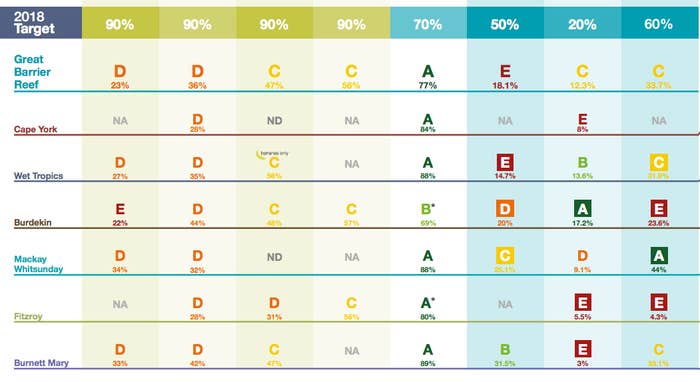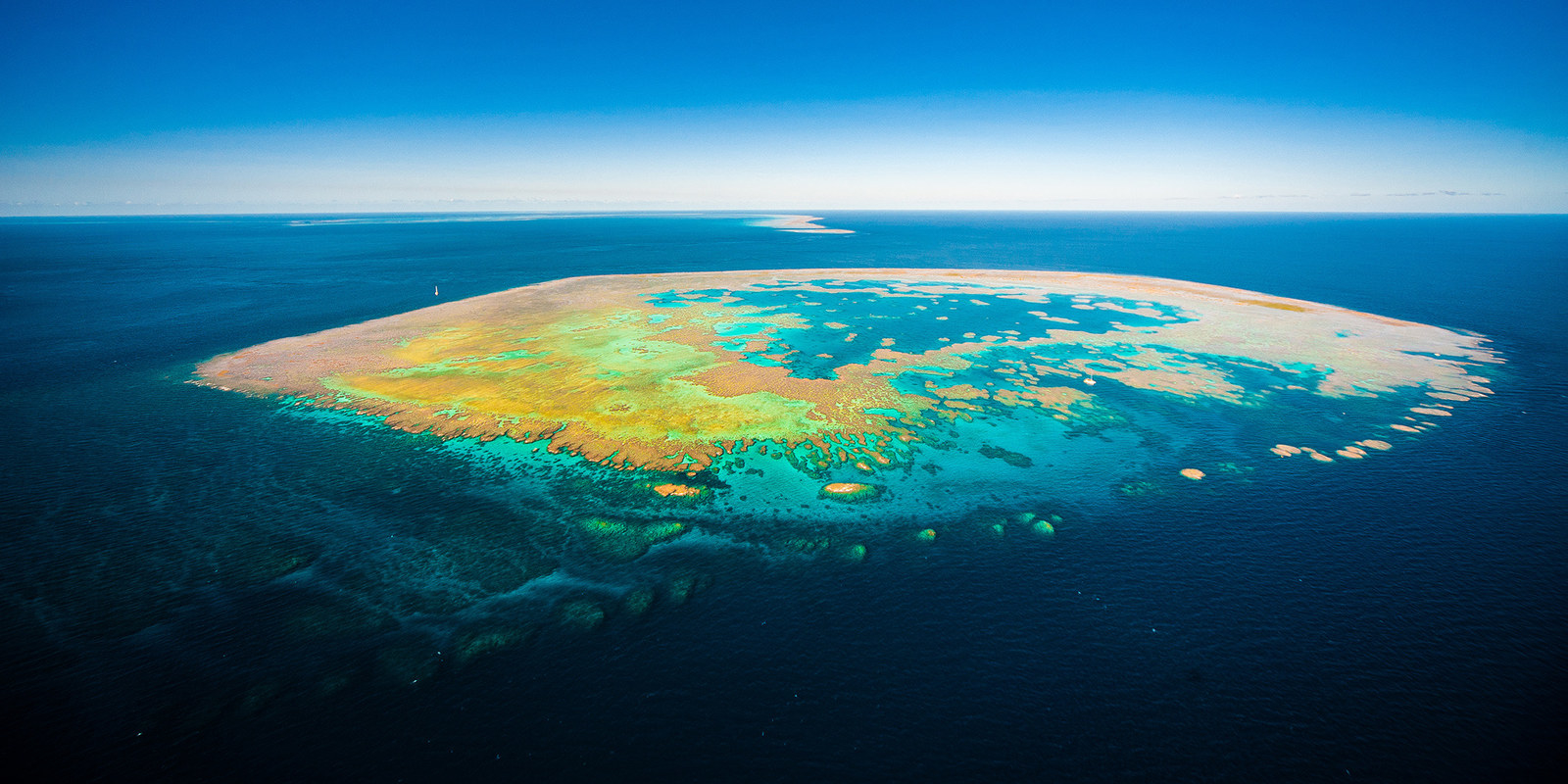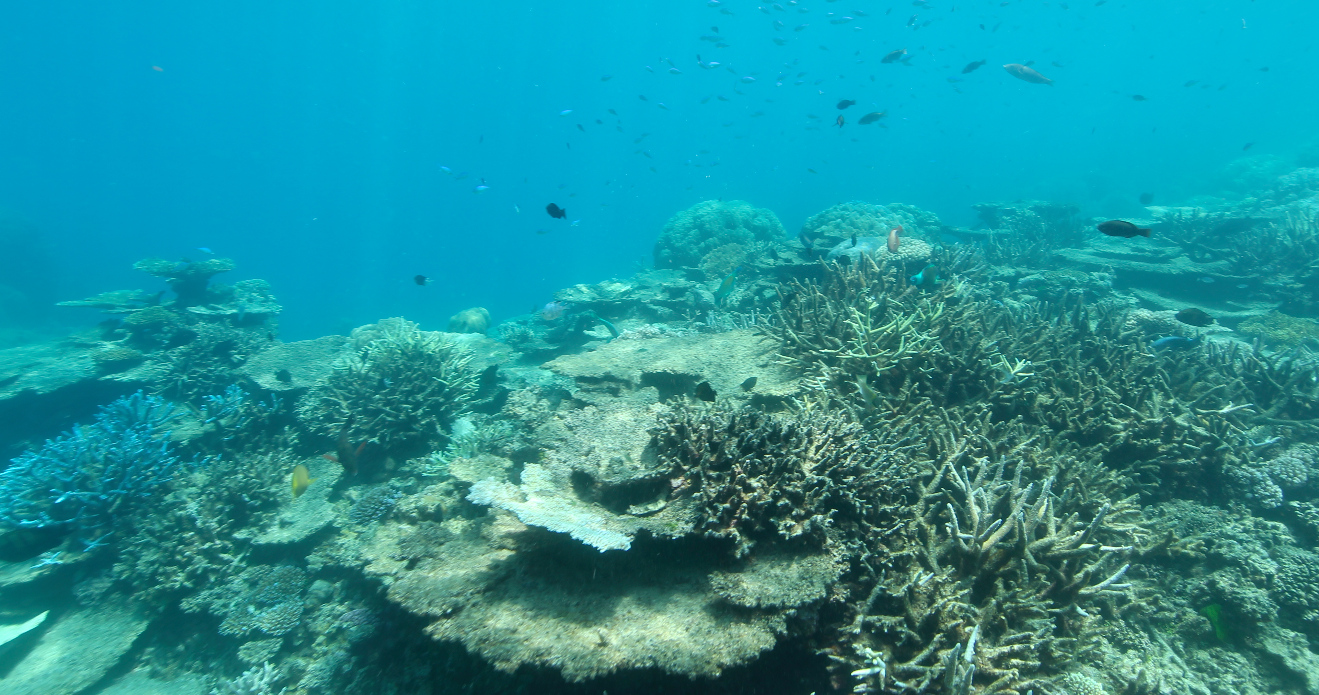The Australian government's annual report card on the health of the Great Barrier Reef has given it a mark of D for the fifth year in a row.

This year's report showed pollution needs to be significantly reduced in several key areas, with grazing and sugarcane management both scoring a D and river catchment pollution given an E.
Water quality and coral improved from D to C this year, but the report did not take into account the coral-bleaching crisis currently afflicting the reef, which will be included in next year's report.
The report card, released on Thursday, forms part of the federal and Queensland state governments' Reef 2050 plan, which will invest $2 billion into the reef over the next decade.
Federal environment minister Josh Frydenberg said the report showed that more work needs to be done.

“This report card shows some real positives, but also some areas where we need to focus more effort,” he said. “Almost half the horticulture and grains land across the Great Barrier Reef catchments is already managed using best management practice systems, with more work needed in sugarcane and grazing management.
Queensland environment minister Steven Miles shifted the blame to the former Newman state government.
“We’ve never sugar-coated this. Parts of the reef are suffering and they are suffering because historically the issues of runoff pollution, and climate change have not been addressed," he said. “This report for 2014-15 demonstrates how the LNP government was failing to make any real progress on reef protection."
A spokesperson for WWF Australia told News Corp that neither government is doing enough to protect the reef.
“The continuing poor scores are further evidence that the current programs and spending on reef pollution fall far short of what’s required,” Sean Hoobin said.

Earlier this week, chairman of the Great Barrier Reef Marine Park Authority, Russell Reichelt, was forced to issue a statement denying that the reef is dying, after months of sustained bad publicity around coral bleaching.
"I am deeply concerned about the impacts of the mass coral bleaching event which is affecting coral reefs throughout the world, including the Great Barrier Reef," he said.
"Headlines that disempower people will not help us protect the reef’s long-term future, which continues to be my sole mission and the Great Barrier Reef Marine Park Authority’s single, steadfast focus."
Last month, scientists from the Climate Council returned to the reef months after the bleaching crisis began, and said there were few signs of improvement.
“The coral that we had observed to be bleaching severely earlier in the year, most of that was dead,” Climate Council chief councillor Tim Flannery told BuzzFeed News.
“People think that the bleaching event and its consequences are in the past. That is far from true. There will be ongoing consequences of this bleaching event for many years.”
